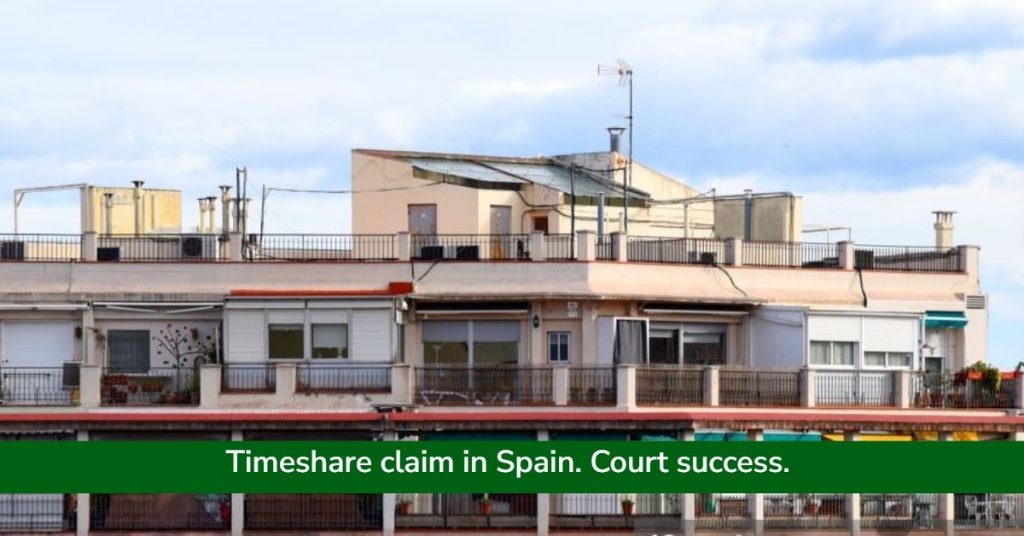Timeshare contracts have generated a high number of disputes in recent years due to their complexity and frequent irregularities in their marketing. In previous articles, we have analysed in depth the applicable legislation. Also, the case law that protects consumers against abusive clauses and contracts that fail to meet legal requirements. Today, we present another court success obtained by our firm in a timeshare claim before the Supreme Court.
What is a Timeshare contract?. Basic concepts.
Timeshare, also known as right-to-use by turns, is a legal system that allows several people to use the same property. This use is granted during specified time periods, in exchange for an initial payment and periodic fees. Although common in tourist areas, these contracts are usually complex and, in many cases, the information provided to buyers is insufficient or misleading, making it difficult to understand their rights and obligations.
Which law applies to Timeshare contracts?. The specific case.
In Spain, timeshare is mainly regulated by Law 42/1998 and later by Law 4/2012. Both regulations establish strict requirements regarding the maximum duration of the contract, the information that must be provided to buyers, and other essential conditions to guarantee transparency and consumer protection.
In the case at hand, our clients signed a contract in 2002 with the company MCVI for a “Silver” week at the Son Antem complex (Marriott, Balearic Islands). The contract breached several legal requirements. It did not specify the exact duration (exceeding 50 years). It failed to provide basic information about the property. And it did not explain the consumer’s right of withdrawal. And so on. In short, it breached the provisions of the law.
First and Second Instance rulings. Withdrawal of Supreme Court appeal.
After filing a judicial claim, our firm obtained the annulment of the contract and an order for reimbursement of the amounts paid at first instance. The Provincial Court confirmed this ruling, rejecting the appeal filed by MCVI. Subsequently, the opposing party filed a cassation appeal before the Supreme Court. Finally, MCVI withdrew from continuing the procedure, accepting the order to pay costs. You can check the full DECREE by clicking here.
Thus, the judicial criterion followed at both instances is confirmed, recognising our client’s right to reimbursement.
If the contract is declared null by the courts, you will be entitled to recover the money paid, along with legal interest.
Organic Law 1/2025 of 2 January. What to expect.
It is important to highlight that the recent approval of Organic Law 1/2025 of 2 January 2025, on measures regarding the efficiency of the Public Justice Service, has amended Law 4/2012. This legislative change could affect how judicial cases are resolved from now on. In fact, some controversial rulings have already been issued in this regard, which we will address in next week’s article.
Conclusions.
At White-Baos Lawyers we have extensive experience in judicial claims related to timeshare complexes, having achieved numerous favourable results. If you have a timeshare contract and wish to file a timeshare claim against Son Antem, Marriott, Ogisaka Garden, Anfi Beach, Parque Denia, MVCI, among others, please contact us.
The information provided in this article is not intended to be legal advice, but merely conveys information relating to legal issues.
Carlos Baos (Lawyer)
White & Baos.
Tel: +34 966 426 185
E-mail: info@white-baos.com
White & Baos 2025 – All Rights Reserved.
